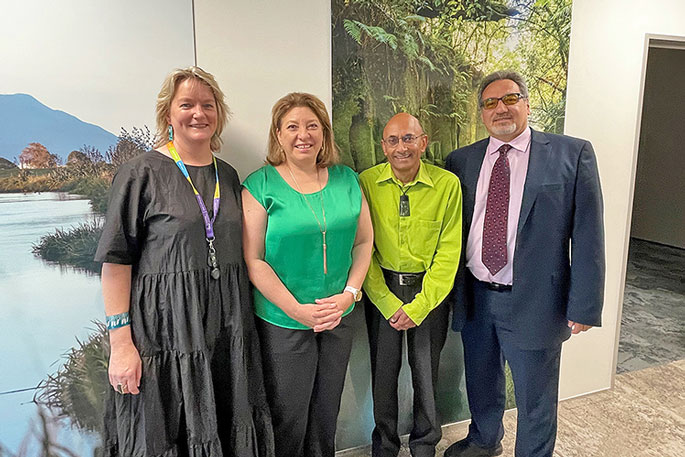The country needs to do a better job of taking care of its people, infrastructure and environment in order to boost productivity, an economist says.
“I yearn for the day when central and local government actually get together and move into working together sensibly like grownups,” Productivity Commissioner Ganesh Nana told the Whakatāne District Council last week.
“The argument between ratepayer and taxpayer is an artificial argument.”
Dr Nana said a number of factors determine productivity and lead to increased wellbeing and living standards.
This included people, infrastructure and the natural environment, along with institutions, regulation and innovation.
Long term investment in these taonga or resources was important, regardless of whether that investment came from taxes or rates, in the present or future.
“We, as a nation, as a community, government, business communities haven’t done a very good job of looking after those underlying determinants, so it is no surprise to me, as an economist, they are underperforming.”
Dr Nana worked at Business and Economic Research Limited (BERL) for 22 years before becoming chairman of independent Crown entity, New Zealand Productivity Commission in 2020.
The commission was formed in 2010 to advise the Government on improving productivity to support the overall wellbeing of New Zealanders, while considering country's the diverse communities and population groups.
Dr Nana was invited to speak to the council as it prepares its long-term plan for 2024 to 2034.
"I’m here because I want to build a better world for my mokopuna,” he said.
Productivity should not be confused with profitability, he said.
“I’m not the commissioner of profitability”, he said, and it couldn’t be seen or talked about in isolation to people and places.
Dr Nana covered a range of topics including how the choices made today will influence the standards of living for future generations.
He also spoke about the commission’s work to break down the cycle of persistent disadvantage, naming power imbalances, discrimination, ongoing impacts of colonisation, siloed and fragmented government and status quo bias as barriers to overcoming disadvantage.
That disadvantage was both multi-generational and multi-dimensional, he said.
“It’s not just housing, or its not just education, it’s a combination of everything. There’s a fat lot of use in telling the person who’s got no housing to go to Kāinga Ora and they’ll find you a house.
Housing was not the only issue, he said.
"It’s the ability to get food, and to put shoes on their child so that they can then go to school and get educated, not to mention the mental health stress that person is under.”
A multi-dimensional approach was needed.
“As much as I, as a public servant, would like to put you in that silo and okay, I’ve given you a house, that’s my job done.”
The publication showed that locally led, whānau-based, centrally funded programmes that recognised the value of a multi-dimensional approach worked best.
Deputy mayor Lesley Immink asked whether Dr Nana felt the new Government was likely to take this information on board.
“What you’re saying is not new. It seems like we’ve had successive Governments who have been hearing this for about 20 years and we still don’t seem to be any further ahead.
Communities was at the core of the Future For Local Government, "yet we seem to be going more into centralisation of everything", she said.
Dr Nana said progress was being made “under the radar”, but not as quickly as he would like.
“Let’s have an open and genuine conversation with our communities," he said.
"You as community leaders owe it to your communities to spell out the rather scary story of what we’ve done in the past hasn’t worked, in terms of looking after our bricks and mortar and our people.
The problems won't go away if they are just passed it on to the next generation, he said.
"Or we make big decisions now to continue to take small bites at that backlog and scramble our way back.”
Public Interest Journalism funded through NZ On Air.




1 comment
Tail wagging.
Posted on 30-10-2023 14:15 | By morepork
"The country needs to do a better job of taking care of its people, infrastructure and environment in order to boost productivity,..." Gee, d'ja' think? You don't need a PhD to recognize this, just look around you. I would modify this sentiment a little as follows: "The country needs to do a better job of helping its people TAKE CARE OF THEMSELVES...". We could solve most of our problems if we simply supported people in taking responsibility for themselves and their families. We don't need a NANNY state, we need an UNCLE state: y'know, the guy who's there when you need some support and guidance, and can help you get the job done. We need to undo the concept of a "welfare" state where you can abnegate all of your responsibilities and hang them on the government. Take responsibility for YOUR life; be the dog; not the tail.
Leave a Comment
You must be logged in to make a comment.